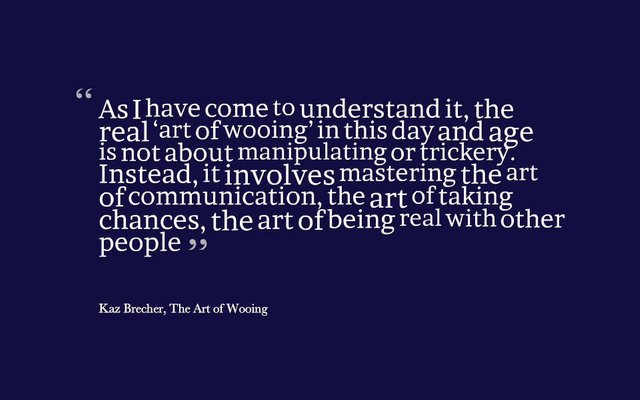Why you should learn the Art of Persuasion

Many people confuse persuasion with manipulation. They believe that being good at persuading makes you, at best, selfish. And at worst,manipulative . The truth is, persuasion is a positive skill and we all use one form of it or another, and daily. And though it might be defined as, 'The art of getting what you want,' I believe persuasion means, 'The art of getting what you want without using or abusing others.' What is the difference?
What people visualize when they hear persuasion

When people hear the word, we automatically think manipulation and deception. However, persuasion is far from deception. For example, on your way to work, you might grab a coffee and ask the baristas to put an extra something in your coffee. Whether they do this for free or not depends entirely on the skills you use to persuade them to do it. You are not deceiving them to give it to you, you are presenting a reasonable request in a calculated way for them to give it to you without directly telling them you want it for free. And because the coffee shop doesn't lose money with these extra requests (they just charge customers), your barista knows this and they decide - throughout the day - who they want to give something free to or not, depending on their approach.
This is not all. Think of your family life, and how often you use this skill without registering that it's persuasion. For example, you might ask your child to tidy their room even though they had a tough day at school. You can either dictate to them, in which case they will repel. Or you can use the right tactics, persuasion, to get them to tidy their room. You might say to them, 'Your room looked amazing last weekend. I really looked forward to going in there. Everything looked in place, and I loved how you placed that item on the bed, desk etc.' So in this case, you haven't ordered the child to do anything. However, you have painted them how the outcome of their room being tidy makes you feel. And because children love to please their parents and make them feel proud, they would want to tidy up. Of course if you have a difficult child, you might use that same approach, but add a little bribe to the equation!

All these things we normally classify them as asking, when it's in fact persuasion. Asking demands a response, but persuasion expects action. Contrary to asking, persuasion requires eloquence. In other words, how you choose your words is extremely important just as the pitch you use and the picture you paint for the outcome you want are. By using persuasive skills, you are presenting your point of view and giving others the opportunity to hear you out, weigh out your ideas/suggestions and demonstrate how your way is better than someone else's.
Aristotle's Modes of Persuasion

1. Ethos (Personal character of the speaker)
This is essential because no matter how sharp your persuasion skills, if people doubt your character or know you to be a lier or cheater, your skills are futile.
2. Pathos (How you emotionally influence your audience)
This is just as important because as a speaker who wants to persuade an audience, you have to appeal to their emotional side and relate to them so they can be on your side.
3. Logos (The content and quality of your argument)
If you have perfected the first two modes, but do not have a strong argument that is well prepared and without any cracks, then your efforts will be lost. As a speaker, you have to answer all your audience's questions (before they even ask) and address their fears. Similarly, you have transport your audience to where you want them emotionally so they see, understand and believe in the potential or validity of what you are presenting.
The difference between persuading and selling

Persuasion is influencing by presenting your side of the argument in a logical, clear and powerful way. In persuasion, everyone wins because the speaker gets the audience on his/her side, and the audience is given the full picture so they can decide whether they want to believe or accept. In other words, there is no deception or manipulation, and it's completely mutual. In selling however, there can be elements of manipulation and deception where a customer's weakness or ignorance is used to sell things they don't need or at a price that is unjustifiable. Additionally, selling can also include lying and exaggerating, and it's often the seller who gains, while the customer is sold short.
wonderful words. U can persuade any person by fascinating..
so, dear guys! make ur personality and attitude more impressive and fascinating.,
Thanks!
Great post. Thank you @nomad17
Thanks!
Congratulations @nomad17! You have completed some achievement on Steemit and have been rewarded with new badge(s) :
Click on any badge to view your own Board of Honor on SteemitBoard.
For more information about SteemitBoard, click here
If you no longer want to receive notifications, reply to this comment with the word
STOPCongratulations @nomad17! You have completed some achievement on Steemit and have been rewarded with new badge(s) :
Click on any badge to view your own Board of Honor on SteemitBoard.
For more information about SteemitBoard, click here
If you no longer want to receive notifications, reply to this comment with the word
STOP